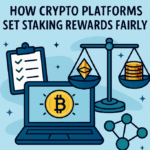In a new development within the online gaming community, a growing number of individuals are spending money to play as virtual citizens who usually idle within the realms, tavern workers, or even the pedestrians who meander about the towns.
These are not the individuals who are the protagonists of the story, they are the everyday non-playable characters (NPCs) that exist within the gaming universe. This peculiar practice, which perhaps appears bizarre to most gamers, is gaining steam in the metaverse, specifically in games like Grand Theft Auto Online

VRChat, and most notably in the roleplay servers of Red Dead Redemption 2 and FiveM, a modded GTA V multiplayer server. So what would motivate gamers to pay to assume such monotonous characters?
The Rise of Immersive Roleplay
The most notable factors contributing to this trend include the growing popularity of immersive roleplay (RP) activities. In these RP communities, the primary focus is realism. Players go as far as to craft entire lives for their characters, which include getting backstories, daily habits, jobs, and distinct personalities.
Such realism is further enhanced when the world is populated not just by players engaged in a hyperactive pursuit of achievement, but ordinary characters as well. The realism is bolstered by players assuming the unsung roles of a bartender, shopkeeper, taxi driver, or even a janitor. This creates a virtual society, alive and pulsating.
Engaging in such activities and roleplay as a background character provides a fully immersive participatory experience within a shared narrative. The charm lies in the ability to assume a role seamlessly within the backdrop of an ongoing plot. It is social simulation blended with improv theater, and for a good number of players, the focus is on socializing, not combat or objectives.
Social Status and Recognition
Surprisingly, background roles in these RP servers can accomplish some kind of in-game notoriety. A cab driver who is always on duty, or a tavern keeper who hosts themed parties, can become communityicons.

These are the sorts of people players reminisce about, discuss, and weave into stories. For a lot of people, this is far more satisfying than competing for leaderboard ranks or in-game items.
This is best demonstrated on Twitch and YouTube, where streamers share entire episodes of RP gameplay.
Often, the most loved characters in these episodes and streams are not the police or the criminals, but the outrageous shopkeepers, news reporters, or sanitation workers. These positions provide comic relief and emotional depth as well as unpredictable plot twists.
Payment for Presence and Identity
In some instances, people are willing to pay to assume these roles. Roleplay servers in particular seem to have application fees, donation tiers, or paid slots that provide access to more immersive or exclusive experiences.
For some background roles, they are reserved for those who financially support the server by purchasing custom skins and items relating to the role. Some players pay to gain training, scripts, and community tools that augment their NPC-style performances.
This form of monetization is not exploitative because it is used for paying for the servers, community moderation, and development work. Paying players are not just receiving an experience, they are purchasing the right to partake in the theater of the digital imagination to perform and be appreciated.
Escaping From the Burden of the Hero Role
Traditional games come with a lot of stress for the players to deal with. Winning, leveling, achieving quests are all high-pressure tasks. The background roles are a paradox of low-stress work. The gear optimization and combat mastery are absent, and instead, players are greeted with a much more casual and often silly form of engagement.

For players who wish to relax and socialize, taking the role of a background character is much more preferable than leading a raid or suffering through a loot grind. It is an enlightening reminder that enjoyment is not merely in the heat of the action. It is also in the simpler form of existence in a shared space.
A Change in Gamers’ Traditions
This is a community-owned development in gaming that is no small change. It illustrates the gradual shift in gaming competition towards collaboration and the power fantasies of the players, and turns the development back to community stories. It indicates that more and more, players is looking for lifelike experiences with all the mundane, and charm, and surprise that entails.
In these metaverse spaces, a player may take on the role of a grumpy librarian, nurse, or a baker which isn’t quite a downgrade from being a rogue or warrior. It is a different shade of fantasy, one that is more about connection, creativity, and expression. Gamers are realizing that the satisfaction that comes from feeling the world come alive, even if you are the one selling apples in the town square is deeply fulfilling.
Conclusion
At first, the notion of a “background character” sounds bizarre and reminiscent of paying to take on a role that has no real impact. However, in the broader context of how video games continue to develop as instruments of interaction, this is very different and unique.
There will always be a demand for “ordinary” characters as player-driven worlds become more complex. Rather than merely being passive participants, these individuals transform the fictional universe, enriching it with depth, and in that sense become the unsung heroes.
FAQ
Why would anyone want to play as a background character in a game?
Many gamers enjoy immersive roleplay, where playing realistic roles like shopkeepers or bartenders adds depth to the game world and enhances storytelling.
Are these roles boring or passive?
Not at all. Background roles often involve rich social interaction, improvisation, and can even make players local legends within roleplay communities.
Why do players pay for these roles?
Payments often grant access to exclusive servers, jobs, or tools that enhance the experience. Funds typically support server maintenance and development.









